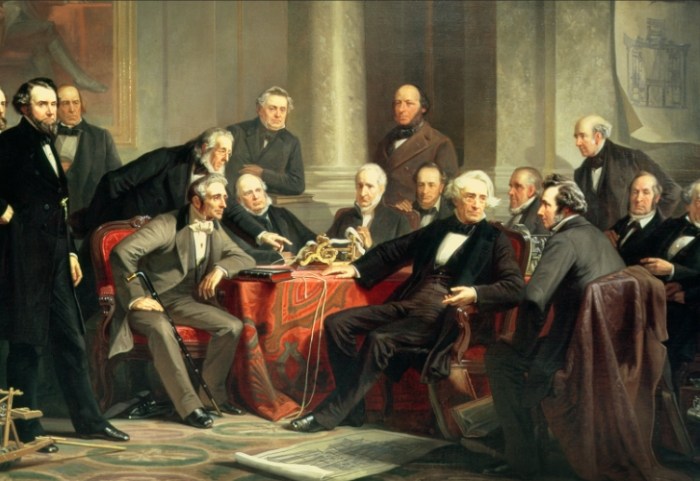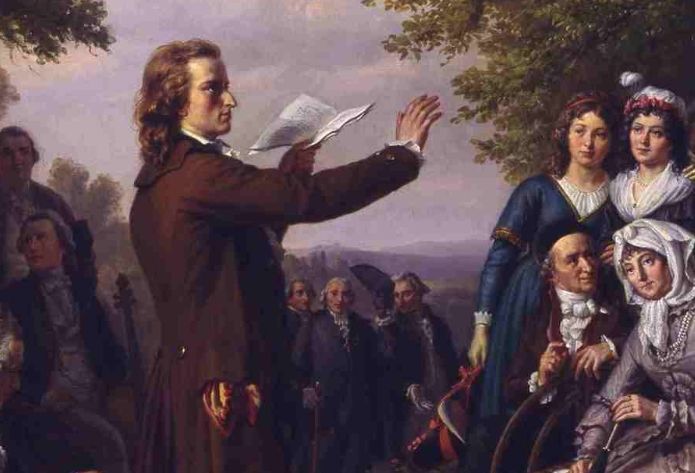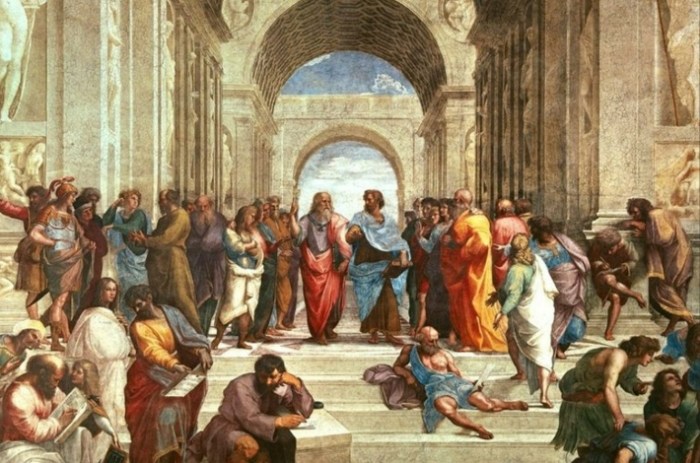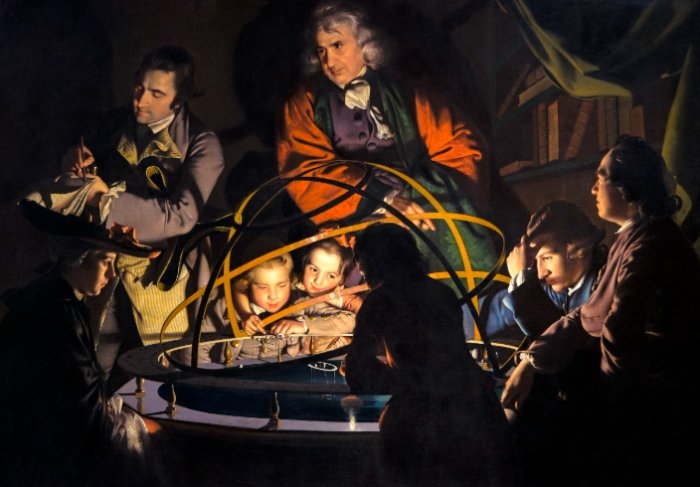Age of Enlightenment: Key Philosophers & Their Impact
Advertisements
Wondering how the Age of Enlightenment reshaped the world? Explore 18th-century Europe's intellectual revolution—from Voltaire's wit to Rousseau's social contracts and Kant's 'Dare to know!' manifesto. Discover how reason, science, and humanism dethroned superstition, fueling revolutions and modern democracy. Uncover key philosophers, groundbreaking ideas, and the movement's lasting impact on education, rights, and secular thought today!
Advertisements
Table of Contents
Advertisements
Introduction to the Enlightenment in France

Overview of the Enlightenment
The Age of Enlightenment, known as le Siècle des Lumières in French, was a transformative period in European history that spanned roughly from the late 17th century to the late 18th century. This intellectual and philosophical movement emphasized reason, individualism, and skepticism of traditional authority, particularly religious and political institutions. In France, the Enlightenment was a vibrant crucible of ideas that challenged the status quo and laid the groundwork for revolutionary changes in society, politics, and culture.
France as the Epicenter of Enlightenment Thought
France emerged as the epicenter of Enlightenment thought due to a confluence of factors, including the flourishing of salon culture, the prominence of intellectuals and philosophers, and the relative stability of the monarchy under Louis XIV and his successors. The salons, elegant gatherings hosted by aristocratic women, provided a platform for the exchange of ideas among writers, artists, scientists, and politicians. These informal gatherings fostered an environment where free thinking and debate thrived, transcending social barriers and encouraging the dissemination of Enlightenment ideals.
Historical Context and Attempts

Pre-Enlightenment France: Absolutism and Religious Orthodoxy
Before the Enlightenment, France was characterized by absolute monarchy and religious orthodoxy. The Catholic Church held significant influence over both the state and society, and the monarchy, under the Bourbon dynasty, wielded unchecked power. Louis XIV, the "Sun King," epitomized this era of absolutism, centralizing power and promoting the glorification of the monarchy through art, architecture, and propaganda. However, beneath this veneer of stability, social and economic tensions simmered, fueled by inequality, corruption, and the burdens of taxation on the lower classes.
The Emergence of Critical Thought
The seeds of the Enlightenment were sown in the late 17th century, as a growing number of intellectuals began to question the authority of the Church and the monarchy. Figures like Pierre Bayle, a philosopher and writer, challenged religious dogma and advocated for tolerance and freedom of thought. His Dictionnaire historique et critique (1697) was a landmark work that questioned traditional beliefs and paved the way for more radical critiques of authority.
The Influence of Scientific Revolution
The Scientific Revolution of the 16th and 17th centuries also played a crucial role in shaping Enlightenment thought. The success of the scientific method, which emphasized empirical observation and rational inquiry, inspired philosophers to apply similar principles to the study of human society and governance. Thinkers like René Descartes, with his famous dictum "Cogito, ergo sum" ("I think, therefore I am"), laid the groundwork for a rationalist approach to philosophy, emphasizing the power of human reason to understand the world.
Major Events and Figures

The Salons: Intellectual Hubs of the Enlightenment
The salons of Paris were instrumental in disseminating Enlightenment ideas. Hosted by influential women like Madame Geoffrin, Madame du Deffand, and Madame de Staël, these gatherings attracted a diverse array of intellectuals, including Voltaire, Diderot, and Rousseau. The salons provided a space for cross-pollination of ideas, where philosophers could engage in lively debates, share their writings, and build networks of like-minded individuals.
Key Figures in the Salon Culture
- Madame Geoffrin: Known as the "Queen of the Salons," Geoffrin's gatherings were renowned for their intellectual rigor and the presence of leading figures of the Enlightenment.
- Denis Diderot: A prominent philosopher and writer, Diderot was a regular attendee of the salons and played a pivotal role in editing the Encyclopédie, a comprehensive compilation of knowledge that challenged traditional authority and promoted secularism.
The Publication of the Encyclopédie
The Encyclopédie, ou dictionnaire raisonné des sciences, des arts et des métiers (Encyclopedia, or a Systematic Dictionary of the Sciences, Arts, and Crafts), edited by Denis Diderot and Jean le Rond d'Alembert, was a monumental project that encapsulated the spirit of the Enlightenment. Published in 17 volumes between 1751 and 1772, the Encyclopédie aimed to compile and disseminate knowledge across a wide range of disciplines, from science and technology to philosophy and the arts. Its entries often included critiques of religious and political institutions, making it a controversial and influential work.
Impact of the Encyclopédie
- Challenging Authority: The Encyclopédie questioned traditional beliefs and institutions, promoting a more secular and rational worldview.
- Dissemination of Knowledge: By making knowledge accessible to a broader audience, the Encyclopédie empowered individuals to think critically and independently.
The Philosophes: Intellectual Leaders of the Enlightenment
The philosophes, a group of French Enlightenment thinkers, were the driving force behind the movement's intellectual and philosophical agenda. They advocated for reason, science, and progress, and their writings had a profound impact on French society and beyond.
Key Philosophes and Their Contributions
- Voltaire (François-Marie Arouet): A prolific writer and satirist, Voltaire was a vocal critic of religious intolerance and the Catholic Church. His works, such as Candide (1759), exposed the absurdities of religious dogma and promoted tolerance and reason.
- Jean-Jacques Rousseau: Rousseau's ideas on the social contract and the general will had a significant influence on political thought. In The Social Contract (1762), he argued that legitimate political authority must be based on the consent of the governed, laying the groundwork for modern democratic theory.
- Montesquieu (Charles-Louis de Secondat): Montesquieu's The Spirit of the Laws (1748) examined the relationship between government and society, advocating for the separation of powers and checks and balances to prevent tyranny.
Classical Interpretations and Themes

Reason and Rationality
One of the central tenets of the Enlightenment was the emphasis on reason and rationality. Philosophers believed that human reason could unlock the secrets of the universe, improve society, and guide individuals towards a more fulfilling life. This emphasis on reason led to a rejection of superstition, religious dogma, and unquestioning obedience to authority.
Applications of Reason
- Science and Technology: The application of reason to scientific inquiry led to significant advancements in fields like physics, chemistry, and biology, paving the way for the Industrial Revolution.
- Political Theory: Rational analysis of political systems led to the development of new theories of governance, such as democracy and republicanism, which challenged the legitimacy of absolute monarchy.
Individualism and Human Rights
The Enlightenment also championed the concept of individualism, emphasizing the worth and dignity of the individual. This shift in perspective had profound implications for human rights, as philosophers began to argue that individuals possessed inherent rights that could not be arbitrarily taken away by the state or the Church.
Key Developments in Human Rights
- Declaration of the Rights of Man and of the Citizen: Inspired by Enlightenment ideals, the French Revolution's Declaration of the Rights of Man and of the Citizen (1789) proclaimed the fundamental rights of all citizens, including liberty, equality, and fraternity.
- Abolition of Feudal Privileges: The Enlightenment's emphasis on equality led to the abolition of feudal privileges and the establishment of a more egalitarian social order.
Skepticism and Critique of Tradition
Another hallmark of the Enlightenment was its skepticism towards traditional authority and institutions. Philosophers encouraged individuals to question established beliefs and practices, using reason and evidence to evaluate their validity. This critical spirit extended to religion, politics, and even the arts, leading to a reevaluation of long-held assumptions and a push for reform.
Examples of Skepticism and Critique
- Critique of Religious Orthodoxy: Voltaire and other philosophes criticized the Catholic Church for its corruption, intolerance, and suppression of free thought.
- Political Satire: Writers like Jonathan Swift and Voltaire used satire to expose the absurdities and injustices of political systems, encouraging readers to think critically about their own governments.
Time Axis of the Enlightenment in France
Early Enlightenment (Late 17th Century - Early 18th Century)
- 1687: Isaac Newton publishes Philosophiæ Naturalis Principia Mathematica, laying the foundation for classical mechanics and inspiring a rationalist approach to understanding the natural world.
- 1697: Pierre Bayle publishes Dictionnaire historique et critique, challenging religious dogma and advocating for tolerance and freedom of thought.
Mid-Enlightenment (Mid-18th Century)
- 1751: The first volume of the Encyclopédie is published, marking a significant milestone in the dissemination of Enlightenment ideas.
- 1759: Voltaire publishes Candide, a satirical novella that critiques religious intolerance and the absurdities of optimism.
Late Enlightenment (Late 18th Century)
- 1762: Jean-Jacques Rousseau publishes The Social Contract, advocating for the separation of powers and the general will as the basis for legitimate political authority.
- 1772: The final volume of the Encyclopédie is published, completing the monumental project that challenged traditional authority and promoted secularism.
- 1789: The French Revolution begins, inspired in part by Enlightenment ideals of liberty, equality, and fraternity.
Character Sketches: Portraits of Enlightenment Figures
Voltaire: The Satirist and Advocate of Reason
Voltaire, born François-Marie Arouet in 1694, was one of the most influential figures of the French Enlightenment. A prolific writer, satirist, and philosopher, Voltaire used his pen to challenge religious intolerance, political corruption, and social injustice. His works, including Candide, Zadig, and Letters on the English, were widely read and translated, making him a household name across Europe.
Voltaire's Legacy
- Advocacy for Religious Tolerance: Voltaire was a vocal advocate for religious tolerance, arguing that individuals should be free to practice their own beliefs without fear of persecution.
- Criticism of the Catholic Church: His satirical critiques of the Catholic Church, such as in Candide, exposed the absurdities and hypocrisies of religious dogma, earning him both admiration and enmity.
Jean-Jacques Rousseau: The Visionary of Social Contract Theory
Jean-Jacques Rousseau, born in 1712, was a Swiss-French philosopher whose ideas on the social contract and the general will had a profound impact on political thought. In The Social Contract, Rousseau argued that legitimate political authority must be based on the consent of the governed, and that individuals should surrender some of their freedoms to the collective will in exchange for protection and the common good.
Rousseau's Influence
- Development of Democratic Theory: Rousseau's ideas on the social contract laid the groundwork for modern democratic theory, inspiring subsequent generations of political thinkers and revolutionaries.
- Emphasis on the Common Good: His focus on the general will as the basis for political authority emphasized the importance of the common good over individual interests, a principle that continues to resonate in contemporary political discourse.
Denis Diderot: The Editor and Visionary of the Encyclopédie
Denis Diderot, born in 1713, was a French philosopher, writer, and art critic who played a pivotal role in editing the Encyclopédie. A polymath with interests spanning philosophy, science, and the arts, Diderot was committed to compiling and disseminating knowledge in a way that challenged traditional authority and promoted secularism.
Diderot's Contributions
- Compilation of the Encyclopédie: Diderot's leadership in editing the Encyclopédie was instrumental in its success, as he assembled a team of contributors from diverse fields and ensured that the entries were both comprehensive and critical.
- Promotion of Secularism: Through the Encyclopédie, Diderot advocated for a more secular worldview, challenging the influence of the Catholic Church and promoting the use of reason and science to understand the world.
Q&A
When did the Enlightenment start and end?
The Enlightenment is generally considered to have started in the late 17th century and ended in the late 18th century. However, its influence extended beyond this period, shaping intellectual and political developments well into the 19th century.
What are the three major ideas of the Enlightenment?
The three major ideas of the Enlightenment are:
- Reason and Rationality: The emphasis on using human reason to understand the world, improve society, and guide individual behavior.
- Individualism and Human Rights: The recognition of the worth and dignity of the individual, and the advocacy for inherent rights that cannot be arbitrarily taken away.
- Skepticism and Critique of Tradition: The encouragement to question established beliefs and practices, using reason and evidence to evaluate their validity.
What are 5 important facts about the Enlightenment?
- Origins in France: France was the epicenter of Enlightenment thought, with Paris serving as a hub for intellectual exchange and debate.
- Salon Culture: The salons, hosted by aristocratic women, provided a platform for the dissemination of Enlightenment ideas and the formation of intellectual networks.
- The Encyclopédie: The Encyclopédie, edited by Denis Diderot and Jean le Rond d'Alembert, was a monumental project that challenged traditional authority and promoted secularism.
- Influence on the French Revolution: Enlightenment ideals of liberty, equality, and fraternity inspired the French Revolution and the subsequent establishment of a republican government.
- Global Impact: The Enlightenment had a profound impact on intellectual and political developments across the globe, influencing the American Revolution, the Haitian Revolution, and subsequent movements for independence and democracy.
When was the Age of Enlightenment in Britain?
While the Enlightenment is often associated with France, it also had a significant impact in Britain. The British Enlightenment, sometimes referred to as the Scottish Enlightenment (due to the prominence of Scottish thinkers like David Hume and Adam Smith), flourished in the 18th century. British philosophers and intellectuals contributed to the movement's emphasis on reason, science, and progress, while also developing their own unique perspectives on political economy, moral philosophy, and aesthetics.